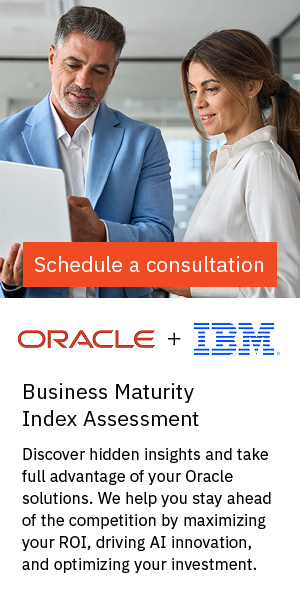Artificial Intelligence was front and center as Oracle Executive Vice President of Applications Development, Steve Miranda, delivered the opening keynote at Oracle CloudWorld 2025 in New York City yesterday. Speaking to a packed room of enterprise technology leaders, Miranda emphasized AI’s transformative impact on the future of business operations—and Oracle’s role in powering that change.
“AI is unquestionably the largest development innovation that we see,” Miranda said. “It impacts everything—from how we market and service our customers to how we build our products and run internal operations.”
Miranda’s keynote underscored Oracle’s strategy of embedding AI capabilities across its entire cloud technology stack. He noted that Oracle Cloud Infrastructure (OCI) is now the preferred platform for training and deploying many of the world’s most advanced AI models. “Every major foundation model has chosen OCI because it is the fastest, most secure, most scalable, and top-performing capability on the market,” he said.
He cited real-world examples of AI adoption among Oracle customers, including BNP Paribas, Foot Locker, and AT&T, who are deploying AI across functions such as customer service, network monitoring, product protection, and revenue optimization. “Organizations that adopt new technology thrive. Those that resist or hesitate under the guise of risk struggle through transformation,” Miranda added.
A Future-proof Foundation
A key message of the keynote was that businesses must unify their data and apply AI strategically to stay competitive. Oracle’s “complete stack” approach—spanning infrastructure, data platforms, AI services, and applications—enables this transformation with flexibility and scale. “Whether your workload starts with cloud infrastructure or AI services, Oracle offers the flexibility and choice to integrate with your existing environment,” said Miranda.
Oracle is not only investing in core technologies, but also enhancing its industry-specific applications with embedded AI, helping customers achieve automation, insight, and operational efficiency.
TD Bank Shares its Transformation Journey
Joining Miranda on stage was Rod Johnson, Oracle’s Executive Vice President, North America Applications, who spoke with Morgan McKenney, a senior executive from TD Bank about the bank’s multi-year transformation journey with Oracle Cloud. “My team supports finance, risk, and treasury functions of the bank. We’ve made huge investments in data foundations and cloud transformation to enable regulatory reporting and real-time insights,” McKenney said.
She highlighted the bank’s move to Oracle’s next-generation cloud infrastructure as a turning point. “We started on Gen 1 cloud, but Gen 2 has been amazing—secure, stable operations that enable efficiency and innovation,” she said. TD Bank is now focused on unlocking new business value and preparing for a future shaped by AI.
McKenney expressed excitement about Oracle’s embedded AI capabilities, calling them “out of the box and ready to deploy” for finance and compliance teams. “Every dollar of value I give back to our business helps them deliver better customer experiences. That’s really what we’re in business for,” she added.
Oracle’s Transformation Into a Services Partner
Closing his keynote, Miranda positioned Oracle not just as a technology provider, but as a transformation partner. “We are evolving into a services company. Our goal is to guide customers through this monumental technology shift with best-in-class tools, infrastructure, and expert advice,” he said.
The message was clear: AI is no longer a futuristic concept—it’s a present-day business imperative, and Oracle is prepared to lead the way.
What This Means for ERP Insiders
AI is now a business imperative—not a future consideration. Oracle’s keynote message that AI is the most transformative innovation of our time aligns with broader industry momentum. Forecasts predict that global spending on AI-centric systems will reach $300 billion by 2026, reflecting a compound annual growth rate of 27%. Oracle’s examples from BNP Paribas, Foot Locker, and AT&T show that AI is no longer confined to experimentation—it’s delivering measurable results across customer engagement, operations, and product development. For business technology leaders, the smartest way to begin is by applying AI to use cases with clear and immediate ROI, such as customer service automation, financial forecasting, and network monitoring, before scaling efforts enterprise-wide.
Cloud infrastructure choice determines AI readiness and scalability. Oracle Cloud Infrastructure (OCI) is rapidly becoming a top choice for enterprises deploying AI at scale, thanks to its high performance, security, and support for advanced workloads. As businesses shift toward more composable architectures, the ability to integrate with best-in-class AI models—whether from OpenAI today or new entrants tomorrow—becomes critical. When evaluating cloud providers, decision-makers should go beyond pricing and consider whether the platform supports evolving AI models, vector databases, and multimodal workloads. OCI’s open, secure, and high-performance environment offers a future-proof foundation for AI-driven innovation.
Data modernization is essential for regulatory and competitive resilience. TD Bank’s transformation highlights how modern data infrastructure is enabling real-time compliance and strategic agility—an increasingly vital capability in regulated industries. A 2025 Deloitte survey found that 72% of global CFOs plan to increase investment in data governance and compliance automation in the next two years. With regulatory bodies shifting toward continuous, near-real-time reporting, organizations must act quickly to modernize their cloud-based data architecture. Standardized reporting frameworks, integrated data sources, and secure access control are not just enablers of compliance—they are prerequisites for unlocking AI’s full potential across finance, risk, and operations.






